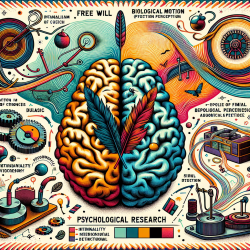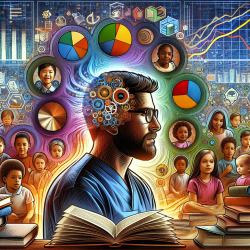The intricate relationship between our beliefs and perception has long fascinated psychologists. A recent study titled "Does belief in free will influence biological motion perception?" offers new insights into how high-level beliefs like free will, dualism, and determinism can impact our ability to perceive biological motion. This research is particularly relevant for practitioners seeking to enhance their understanding of cognitive processes and improve therapeutic interventions.
The Study's Core Findings
The study utilized signal detection theory to explore whether individuals who hold strong beliefs in free will or related constructs such as dualism and determinism are better at detecting biological agents amidst noise. Interestingly, while belief in free will itself did not show a significant correlation with biological motion perception, belief in dualism and determinism did.
- Belief in Dualism: Individuals with a strong belief in dualism exhibited lower sensitivity to biological motion. This suggests that they might perceive intentionality cues even when none exist.
- Belief in Determinism: Those who believed more strongly in determinism showed a tendency towards a liberal response bias, indicating they were more likely to report seeing biological motion even in its absence.
Implications for Practitioners
For practitioners working with clients on cognitive and perceptual issues, these findings highlight the importance of considering clients' belief systems as potential influences on their perceptual experiences. Here are some ways practitioners can apply these insights:
- Assessment: Incorporate questions about philosophical beliefs during assessments to better understand potential biases in clients' perceptions.
- Therapeutic Interventions: Tailor interventions that address how belief systems might influence clients' interpretations of social cues and intentionality.
- Further Research: Encourage further exploration into how modifying belief systems could potentially alter perceptual sensitivities and biases.
The Path Forward
This study opens new avenues for research into the intersection of high-level beliefs and low-level perceptual processes. Future studies could explore causal relationships by employing stronger manipulations of belief systems. Moreover, examining whether these effects are specific to biological motion or extend to other perceptual domains could yield valuable insights.
To read the original research paper and delve deeper into the study's methodology and findings, please follow this link: Does belief in free will influence biological motion perception?










